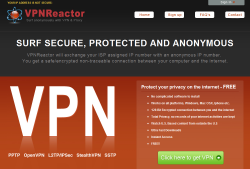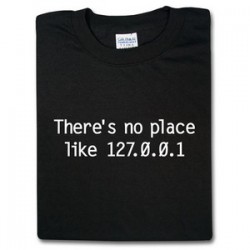Weekly News Roundup (6 May 2012)
Hope you had a good Star Wars Day on May the 4th. Unfortunately, I totally forgot about it, as otherwise it would have been a great occasion to finally watch my Star Wars Blu-rays, which I had been saving until my TV problem had been solved (which it was, last week).
You know how three of Digital Digest’s URL were removed from Google due to a bogus DMCA complaint? Nearly 6 weeks later, all three of the removed URLs have finally been reinstated. It could have happened a bit sooner, but Google messed up my first counter-notification and failed to process it, forcing me to re-submit one about 2 weeks ago, which was finally processed this week. Luckily, none of the URLs were bringing in a lot of traffic from Google to cause any major disruptions, but it could very well turned out to be an expensive problem, but not expensive enough to actually warrant getting lawyers involved!
A pretty good news week, not that all the news was good news, but just that there were plenty of interesting news items to write about, so let’s get started.

We start with news of the blocking of The Pirate Bay in the UK, something that had been coming admittedly, but the required court order was finally handed down this week.
A good number of UK ISPs will have to start blocking access to The Pirate Bay within the next couple of weeks, with some ISPs having already activated their filters. The filtering appears to be in the form of both a DNS filter, and an IP filter. The DNS filter will make sure typing thepiratebay.org (or thepiratebay.se) will no longer resolve to the correct IP address for the website, and the IP filter will ensure that even if you knew the IP address, you won’t be able to access the website.

A VPN service is a worth investment if you value your privacy, or want to access geo-locked legal content, but there are also free (albeit limited) alternatives such as VPNReactor
Of course, this kind of filtering is easily circumvented. By changing to a un-filtered DNS server, such as the ones provided for free by OpenDNS or even Google, it will allow the TPB domains to fully resolve. But this doesn’t really help in the case where the IP address has also been filtered, and so you’ll have to rely on VPNs or proxies to get your TBP fix. Generally speaking, using VPNs for BitTorrent is a good idea these days, as even if you can access TPB and get the Magnet links needed, chances are, your BitTorrent activities (for popular torrents) are still being monitored by one or more agencies (some to involve you in a mass lawsuit, others as part of ‘graduated response’ monitoring regimes). With the right VPN service though, your BitTorrent speed shouldn’t be affected too much, while your activities should now be anonymized. But do check to make sure what the VPN service’s privacy policies are, as some openly state they will hand over server logs to third parties upon request, which kind of makes it pointless if privacy is your biggest concern. VPNs also have the added bonus of allowing you to access geo-locked content from places like Hulu and Netflix, if they offer the option to choose the country where your “fake” IP address comes from.
The news of the block made headlines around the world, and as such, actually drove more traffic to The Pirate Bay. And with plenty of articles and blogs covering the possible solutions to the block, I wonder if all this has done is to actually make more people aware of TPB. And rather than scare them into not using BitTorrent, it may have only helped to push them to make the extra effort to conceal their activities. It could end all rather badly for future anti-piracy efforts if the trend towards VPNs and other anonymizers continue.
And ISPs are also well aware that these kinds of filtering will largely be pointless, and many are now calling on the entertainment industry to find other more effective ways to combat piracy, rather than scapegoating everything on ISPs. A better way, according to ISP Virgin Media, would be to offer more “compelling legal alternatives”. They specifically named Spotify, as the lawsuit that resulted in the blocking was a music industry led one, but it applies just the same to home video. And as you’ll see later in this WNR, consumers have already started to embrace these “compelling legal alternatives” by voting with their hard earned cash.

An IP address is not a person, just like the owner of a phone account is not necessarily the person that made a specific phone call, a judge says
A very interesting legal development happened across the Atlantic too this week, as a New York judge finally took the time to write a detailed ruling on why IP address evidence by themselves are not sufficient to identify individuals. Judge Gary Brown used the same phone account analogy that I’ve used in the past, but hit the bullseye by comparing the use of this type of IP address evidence to an individual who pays the telephone bill being linked with a specific phone call. Judge Brown also raised another interesting point regarding the widespread use of Wi-Fi routers, but not in the traditional “hijacking” scenario where unauthorized use of your Wi-Fi connection may have been responsible for the infringing actions. What the popularity of Wi-Fi does mean, according to Judge Brown, is that it proves more and more authorized individuals are sharing the same Internet account, and this again makes it hard to ascertain just who actually performed the action that broke the law. The copyright groups will argue that, as the owner of the connection, they are always liable for how it’s used even if they’re not at all aware of how it is being used (say goodbye to Wi-Fi hotspots), but again, this doesn’t seem to apply to phone accounts (otherwise, payphones wouldn’t exist because the owners of the payphones would be liable for all illegal activities being conducted on these phones).
I believe the the lack of a deeper understanding of technology by the judiciary has been responsible for the misuse of IP address as evidence, something that copyright groups have been more than willing to exploit. But as the technical proficiency of judges improve, I think we’ll see a lot of these accepted notions challenged. For one, I would like a further examination of the role data transfer and usage plays in infringement, in that how much data must be downloaded (and uploaded) before infringement actually occurs, and how the data has been used. For example, if I attempted to download an infringing file , say from RapidShare, and that download stopped at 95% (thus making the file completely useless), have I committed copyright infringement? And if I make a successful download but never use the file, am I still liable (even though I’ve done no harm to anyone). For uploads, if I only uploaded a single bit of data to a BitTorrent swarm (let’s say, a single zero), am I just as guilty as someone who’s been seeding for weeks?
If Hollywood want to continue their obsession with finding a legal solution to the web piracy problem, instead of focusing on innovation, then these are the issues that need to be cleared up.

There are some encouraging signs that, despite the piracy problem, home video revenue is on the rise again, and it’s largely thanks to the Internet.
The biggest rise came in the area of subscription streaming, with an amazing 545.5% increase in revenue in just a year. Of course, a lot of it comes from disc rental subscribers transitioning to digital, and disc rental revenue was expectedly down, but all this shows, and it’s something that I alluded to earlier in this post, is that consumers are making the choice towards streaming. It could be because it’s convenient, or it’s good value considering how much content you have access to “on tap”, but probably because of both, and it shows that people are happy to use the Internet for legal videos, even if it costs money.
The only thing streaming can’t do effectively right now is to offer ubiquitous high quality HD streaming. The minimum broadband requirement for semi-decent HD that you’d want to watch on your 60″ TV seems to hover around the 10 Mbps mark, and while that’s achievable for many, it also means that a large chunk of their connection has been saturated, and by just a single video stream. Here in Australia, those with 10 Mbps or higher are probably in the minority. Until most homes are capable of receiving at least two such streams at the same time without saturating connections, I think Blu-ray will still have to carry the majority of “HD bits” being delivered to people’s homes. And accordingly, the latest sales results still shows Blu-ray sales rising. With the decline of DVD sales also slowing down, it has allowed the HD format to offset most of the revenue losses (overall, revenue was only down 1% from a year ago for disc based sales).
So to make HD streaming, and possibly even Blu-ray quality streaming, a reality, what we need now is a faster Internet network for everyone. One of the ways to deliver it is via high speed fiber (or fibre, depending on where you’re from), and Google has been building fiber towns all over the US in anticipation. Even in Australia, our government is committed to connecting 93% of homes to fiber, with speeds up to 1Gbp. Even at 100 Mbps, it is still more than enough to stream two full Blu-rays. So you’d think, given the trend towards Internet based video streaming, Big Content should be rejoicing at the advancements in network speeds that will allow for the continued evolution of web based streaming. But once again, the piracy issue turns out to be the one that movie studios are most concerned about.

Here in Australia, the government is rolling out high speed fibre broadband to 93% of households, something that has Hollywood scared (photo credits: NBN Blog)
The MPAA supported AFACT group here in Australia have already issued dire warnings in regards to the country’s fiber project, about what pirates could be doing on super fast networks. And so instead of focusing on the opportunities (the same opportunities that the likes of Google, Apple and Amazon will probably exploit to their, and the consumer’s, advantage), the focus has been on new legislation to curb piracy on the still unfinished network. This week, Google’s fiber town projects have also attracted the same kind of fear and uncertainty from Hollywood’s major studios.
Now, being afraid that a pirate might be able to download an entire Blu-ray disc every 4 minutes over a 1Gbps connection is a perfectly reasonable response. But the thing is that, however scared Hollywood is at this prospect, high speed Internet is coming to people’s homes with or without their support, and no amount of fear-mongering is going to stop it. So instead of trying to DRM the whole Internet and legislate it to death, why not take a breath, calm down, and try to see the possibilities – that instead of fretting about a pirated Blu-ray disc being downloaded in 4 minutes, how about seeing the opportunity to offers consumers the ability to buy, stream and even download and burn their own Blu-ray discs in a nice and easy to use service that’s at a reasonable price, and beat the pirates at their own game.
But that would be too easy, wouldn’t it, so expect more pressure on the legislature to help “protect” the entertainment industry from progress, as the fiber (and next-gen 4G) rollout continues.
Well, that was the week that was. Hope you enjoyed this edition of the WNR. See you in 7.
